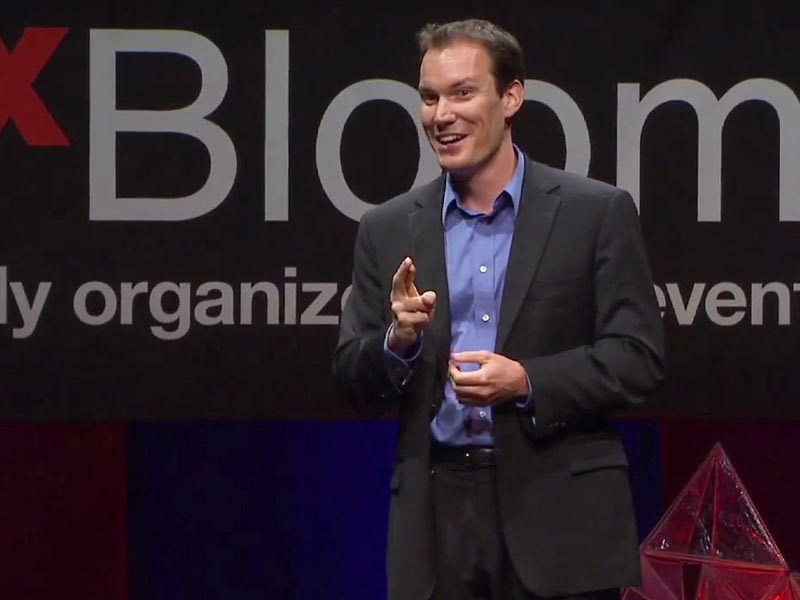One malady that afflicts most young professionals is the idea that if and when they “succeed,” they will be happy.
This is an illusion! When we “succeed,” the very act raises the bar for how we define success. The result? We never get there. Get good grades? You need to get better grades. Admitted to a good college? You should strive to get into a better graduate school. Got a good job? You need to work toward that even better one. And so on.
Don’t take my word for it; the idea (down to those particular examples above) certainly isn’t original with me.
Psychologist Shawn Achor, for one, tells us that we have the idea backward. Success doesn’t lead to happiness. Instead, it’s happiness that fosters success. He argues this in a compelling TED video. It’s three years old now, but I saw it for the first time about three weeks ago. Since then, I’ve been promoting it to everyone I know, and have yet to find the first person who’d already seen it and knew all about it.
So here’s the link, provided for your remedial viewing:
http://www.ted.com/talks/shawn_achor_the_happy_secret_to_better_work
The video is twelve minutes long. The first ten minutes are all humor, but bring you towards the point, which takes up the final two minutes. Mr. Achor actually offers a solution for achieving the happiness you’ll need to be a success at whatever you do.
Some of you will find the message merely affirming… you’ve been doing the right things or something close to them all along. Others may find something new. Whatever your circumstance, you’ll get the Bill-Hooke guarantee; it won’t be the poorest use you’ve made of twelve minutes of your professional life.
___________________________________
A postscript. Regardless of field of specialty, there’s not the professional or knowledge worker alive who couldn’t benefit from Mr. Achor’s TED talk. However, from the standpoint of this blog there is one special audience… those engaged in one or another aspect of the special business of real-world living: developing food, water, energy and other resources; building community-level resilience to extremes; and protecting habitat, biodiversity and environmental quality. This community is currently populated by professionals who aren’t that sanguine about the world’s future prospects. However, as discussed in the previous post, reasons for reality-based hope (as opposed to delusion) are there to be seen. And all seven billion of us need that community above all others to benefit from, and put to work, the happiness advantage.

Shawn Anchor’s excellent observations apply equally well to play as to work. As a long- time poor golfer, I have often thought that, if I could only lower my handicap by ten strokes, then I would enjoy golf far more fully. But one day I noticed that the players whose handicaps were ten strokes lower than my own were just as aggravated by their own golfing shortcomings as I was about my own, far greater ones. Furthermore, I noted that every time I had a really good round, I could be pretty sure that the next time out I would experience the acute disappointment of (and annoyance at) reverting to my true mean.
Progress is difficult, but these simple observations have helped me to focus on the joy of being outside in a pretty location and enjoying the company (and banter) with good friends. The more I can do that, the more fun I have, and the more likely I am to play well. I believe that Mr. Anchor has articulated a universal truth.
Jack Hooke
🙂 Thanks, Jack! Couldn’t agree more.
Thanks for sharing the research with your followers! I appreciate your efforts to help spread the ripple effect of this positivity!
🙂 The thanks are entirely the other way around. 7 billion people should be watching your video, not just 7 million.
And, BTW, we meteorologists have an additional name for this ripple effect, dating back to Ed Lorenz. In the 1960’s he noted that the atmosphere was an inherently chaotic system, and that the “flapping of a butterfly’s wings” could produce a hurricane downstream, in a few week’s time.